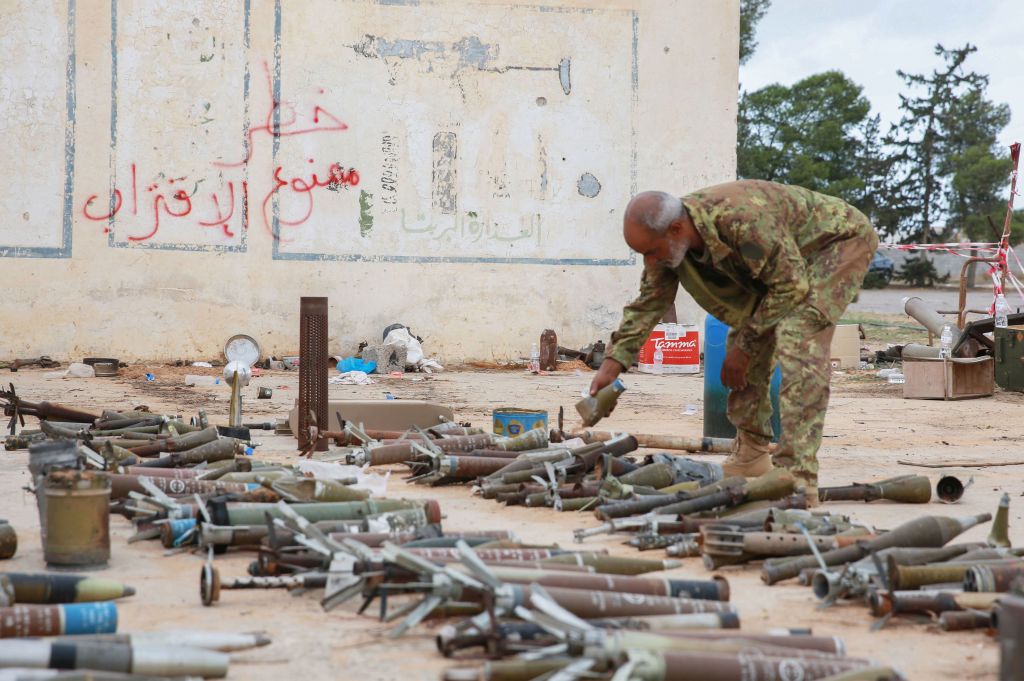ADF STAFF
A decade after it was declared a supermarket for illegal arms traffickers, Libya once again has become a source of illegal weapons flowing into conflicts across the Sahel and neighboring coastal states.
“The high demand for arms and ammunition has given traffickers an opportunity to continue their lucrative trade,” researcher Hassane Koné wrote in a recent analysis for the Institute for Security Studies.
As was the case during Libya’s first civil war in 2011, terrorist groups are buying poorly secured weapons through smuggling routes that cross the Sahara into Niger and Mali. From there, weapons are distributed to conflict zones across the region.
The weapons are a legacy of deposed dictator Moammar Gadhafi, who distributed stockpiles across the country to arm civilians in case of an attack. By some estimates, he had accumulated up to 1 million Kalashnikov rifles by the time the first civil war started in 2011.
Those stockpiles largely were unguarded when the fighting began.
Between 2011 and 2016, according to research compiled by the United Nations Security Council, Libya and its neighbors interdicted more than 1,100 weapons and 330,000 rounds of ammunition either known or suspected to have come from Libyan stockpiles.
Libya’s weapons helped fuel the rebellion that erupted in northern Mali in 2012, which has led to more than a decade of instability in the country.
Trafficking out of Libya slowed in 2013 as the country’s second civil war started, but suspected Libyan weapons have turned up in the hands of fighters in the Central African Republic, Chad, Nigeria and Sudan.
As Libya’s leaders seek to stitch the divided country back together, the decline in fighting is providing a new supply of weapons for the illicit arms trade, according to Koné.
The new arms flow isn’t as substantial as earlier ones, but neighboring countries could be affected, he wrote.
“A solution to Libya’s current crisis could increase trafficking to neighboring countries as the local need decreases,” he added.
In February, Nigerien authorities arrested 10 people in the Tchin-Tabaradene areas for transporting weapons across the border from Libya. They had 12 AK-47 rifles and thousands of rounds of ammunition of varying sizes. Other suspects were arrested in Kao and Kalfou.
As the primary transit route for illicit weapons from Libya, Niger faces international pressure to stop the flow across its border.
Speaking at the Dakar International Conference on Peace and Security in Africa in December, Nigerien President Mohamed Bazoum called for greater cooperation from Niger’s neighbors and allies in the form of intelligence-sharing, air support and strengthening the armed forces.
“The partners’ biggest failure has been their weak involvement in the fight against arms smuggling from Libya, which is the biggest factor in the prevalence of this terrorism,” Bazoum said.

